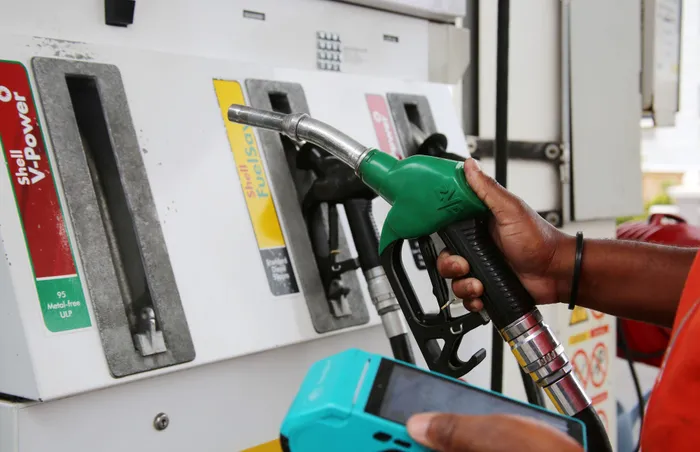Petrol price drop offers slight relief for South African consumers - say experts

Experts say that a slight decrease in petrol price will create some breathing room for consumers.
Image: Tumi Pakkies / Independent Newspapers
Experts say that a slight decrease in petrol price will create some breathing room for consumers. This follows the Minister of Mineral and Petroleum Resources Gwede Mantashe announcing on Wednesday a 5 cents per litre decrease on both grades of petrol and 36.90 cents per litre decrease on both grades of diesel.
Waldo Krugell, an economics professor at the North-West University (NWU), said that consumers are lucky that the slightly stronger rand–dollar exchange rate and stable crude oil price have absorbed the impact of the increase in the fuel levy that came into effect today. “It is not quite relief, but the fact that the price is not going up adds to the little bit of breathing room in household budgets. Last week's repo rate cut will also help. And it is really important as we saw in yesterday's Q1 GDP numbers that household spending is all that is keeping the economy going.”
Dr Eliphas Ndou, an economist and author at Unisa's Department of Economics, said that the decreases in fuel prices due to the rand appreciation against the US dollar and lower oil prices are good news for the logistics sector and commuters, as transport costs and fares will remain low. “It's also good news to producers using these fuels as inputs in their production processes. It’s a huge relief to financially constrained consumers, facing an expensive food basket and high administered prices, as food prices may not rise due to low transportation costs.”
Ndou added that the latest IMF World Economic Outlook report forecasts oil prices to remain around $65 (R1155) per barrel at least throughout the year. “Hence, fluctuations at low prices may keep fuel prices lower in the near future, thereby cushioning motorists and producers against the fuel levy increase.”
Lerato Nkosi, Senior Lecturer in Economics at Unisa, said that what is crucial about the fuel price is the impact it's going to have on the consumer. “The fuel levy increase is already a tax burden that the consumers are facing. A decrease in fuel price will decrease transportation costs and as far as logistics go that will be transportation cost of foods. We hope this will lead to a decrease in the price of food and a decrease in consumer price index (CPI).”
Lebo Ramolahloane, National Vice Chairperson of the South African Petroleum Retailers Association (SAPRA), said that while the price drop is welcome; the benefits are significantly muted by the simultaneous tax hikes. “Consumers and businesses were hoping for a more meaningful reprieve, especially after a third consecutive month of fuel price cuts. Unfortunately, the new increases in fuel levies - 16c per litre for petrol and 15c for diesel - are eroding much of that anticipated relief.”
Ramolahloane added that the revised General Fuel Levy, now R4.15 per litre for petrol and R4.02 for diesel, alongside the Road Accident Fund Levy, still at R2.18 per litre, continues to contribute heavily to the overall fuel price structure. “Fuel is a key cost driver in virtually every industry. Any increase in fuel-related taxes pushes up the cost of transport, goods, and services. So while the price adjustments in June technically decrease, the net gain to consumers is marginal.”
CEO of Debt Rescue Neil Roets says there is no way to sugarcoat the reaction of South Africans to this news. “‘This is a slap in the face of motorists and commuters, who have been battling to make ends meet in the face of ever-escalating living costs for over a year, with authorities seemingly turning a blind eye. It is no secret that this minuscule cut in the price of petrol is a direct result of the General Fuel Levy (GFL), which kicks in from Wednesday, 4th June. Petrol was, in fact, set to decrease by around 20c per litre, but with the 15-cent hike in the GFL, this amounted to a reduction of just five cents per litre.”
BUSINESS REPORT
Visist: https://businessreport.co.za/